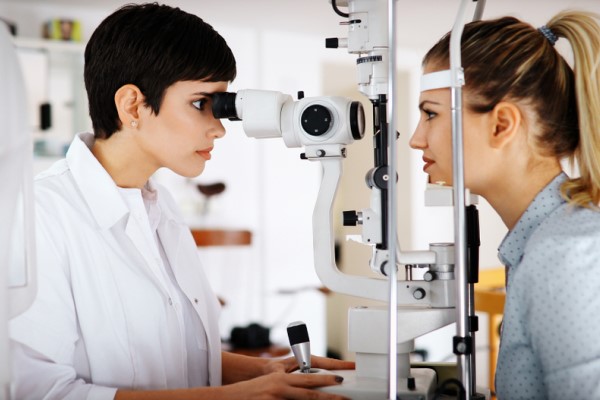What Does an Optometrist Do?

An optometrist can take care of any eye problem you may be experiencing. They can detect and prevent vision problems. An optometrist can also advise you on eye health care. Read on to find out more about what an optometrist does.
Optometrists
Optometrists mainly focus on regular vision care. Optometrists have the training to treat the eyes and other parts of the visual system. Optometrists offer a range of services that can help deal with various complications. Patients can benefit from visiting an optometrist regularly.
Early detection and diagnosis
Optometrists use exams and tests to determine how well the eyes of the patients are working. These exams detect and diagnose eye-related problems. These can include color blindness and glaucoma. If an optometrist finds irregularities, further special tests will be carried out. For example, an optometrist can perform an eye pressure test to rule out glaucoma.
The optometrist can use many other tests to diagnose various problems. These exams are not only for patients with poor vision. A comprehensive examination can find eye problems even before the symptoms show up. Optometrists can catch problems early on. This helps to treat problems before they become worse and cause further damage. It also makes treatment less expensive.
Treatment
An optometrist treats patients for common diseases and problems. Optometrists identify systemic diseases that can cause eye problems. These include hypertension and diabetes. This helps them to monitor patients. It is also a way to prevent the development of common problems associated with systemic conditions. Regular dental visits in such cases are beneficial.
Based on the results of eye exams, the optometrists find the right prescription for the patients. But this depends on where an optometrist is practicing. Prescribing particular medications is not allowed in some regions. Optometrists often prescribe eyeglasses and contact lenses to patients with vision problems. Sometimes, other visual aids and treatments such as low-vision therapy can be recommended. Optometrists also perform minor surgical procedures to treat visual or eye complications.
Care and advice
Optometrists provide care to patients before and after an operation. This can prepare a patient for eye surgery, increasing the chances of proper recovery. Optometrists also counsel patients on the impact general health can have on eyesight. An optometrist can recommend patients quit smoking or lose weight to reduce vision problems.
Specialized care
Some optometrists spend most of the time providing specialized care. For instance, some of them only treat patients with low vision, which is known as partial sight. Others may focus on treating children and infants. Focusing on specialized care makes them well-versed in particular fields.
Contact your optometrist
An optometrist provides important services that can help you maintain your eye health. Optometrists can detect and treat eye and vision problems. An optometrist can also prevent the development of common problems. This ensures problems do not become more complicated and expensive. If you want to find out more about the services they provide, contact your optometrist.
Request an appointment here: https://www.texasoptical.net or call Texas Optical at (214) 771-7333 for an appointment in our Dallas office.
Check out what others are saying about our services on Yelp: Read our Yelp reviews.
Recent Posts
Dry eye treatment is important when occasional irritation becomes ongoing discomfort that interferes with daily activities. Many individuals experience dryness, burning, or a gritty feeling in the eyes from time to time. However, when symptoms start to affect reading, screen use, or time outdoors, a structured approach to diagnosis and care helps protect comfort and…
Myopia control focuses on slowing the progression of nearsightedness, primarily in children and teens, to help protect long-term eye health and day-to-day vision. Myopia occurs when the eye grows too long or the cornea curves too steeply, which causes distant objects to appear blurry. As the prescription increases, the risk of future eye disease also…
Retinal photography gives optometrists a detailed view of the back of the eye. When done regularly, they are often able to spot early signs of disease before symptoms affect daily vision. This advanced imaging tool helps create a clear record of eye health over time and supports smarter decisions about treatment and follow-up care. Learning…
Red, itchy eyes can affect your everyday comfort and reduce overall well-being. It is important to seek effective vision care from the first sign of irritation. Proper attention to symptoms, underlying causes, and healthy habits ensures stronger long-term eye health and greater day-to-day clarity. Redness and itchiness often stem from several common triggers. These include: Allergic…


